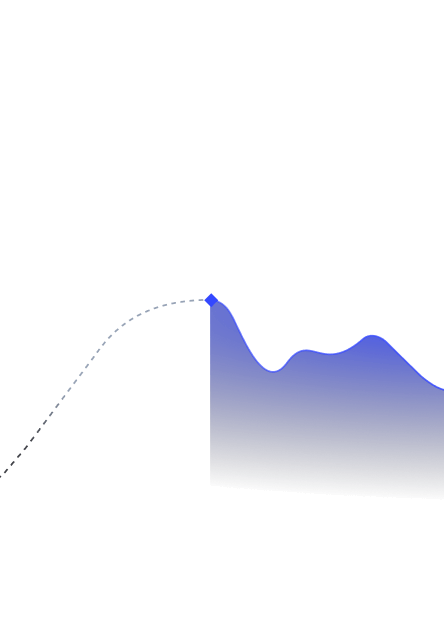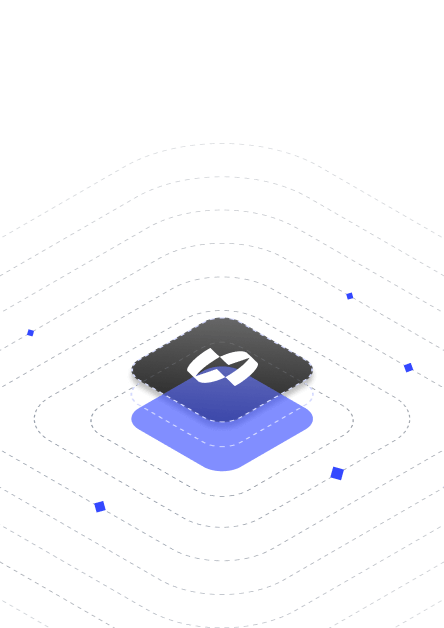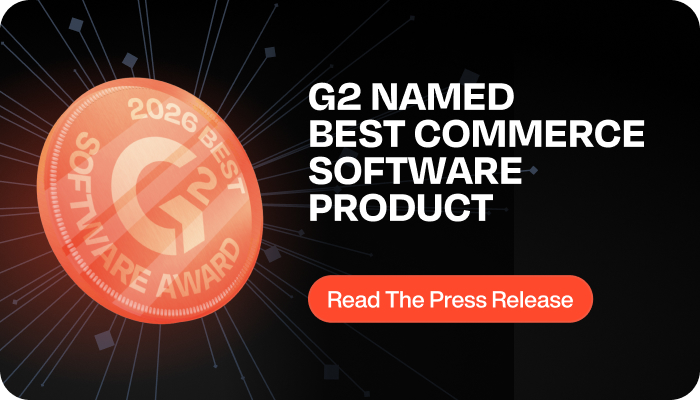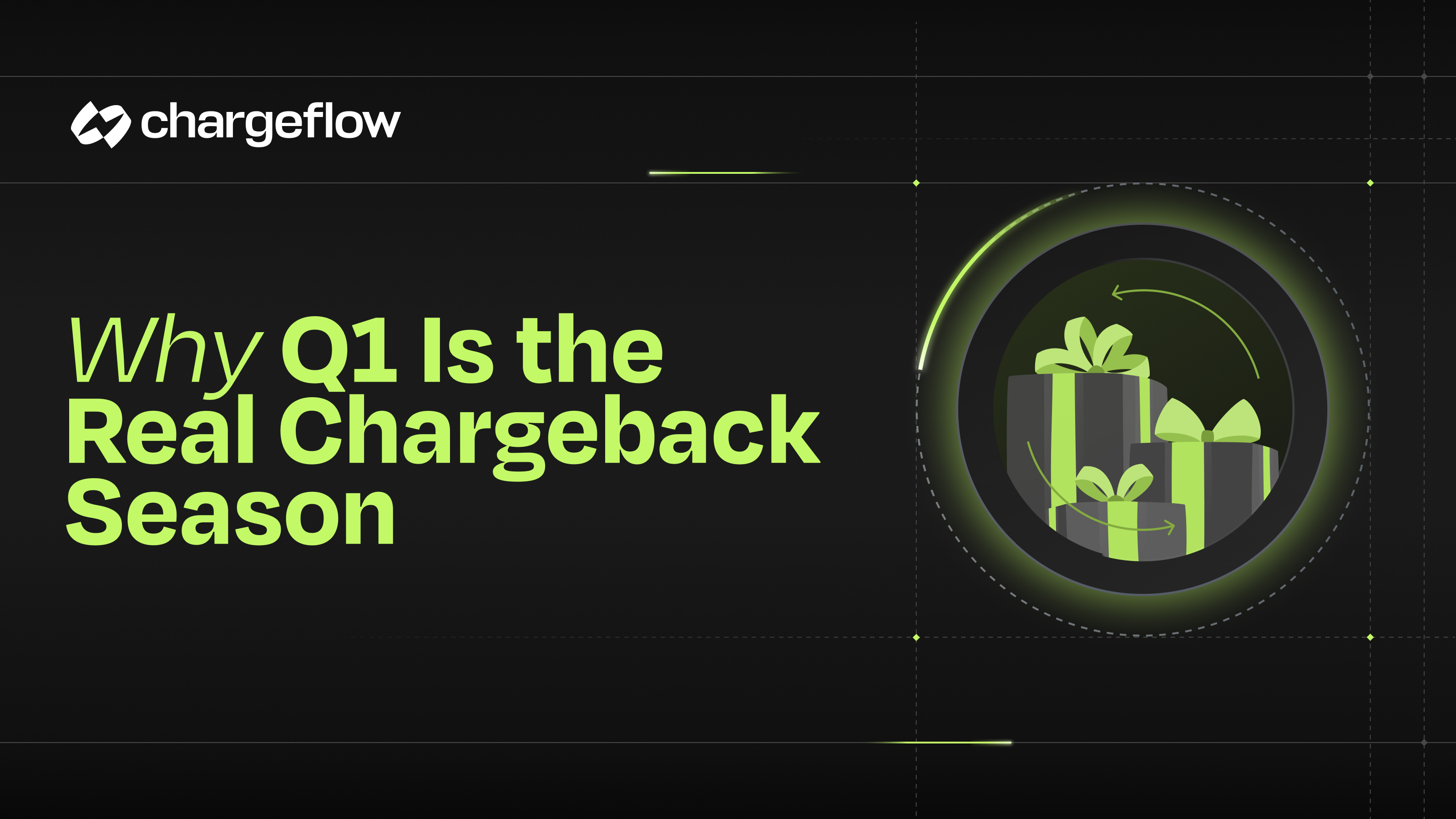Understanding Discover Card Chargebacks: A Guide for Merchants

Chargebacks?
No longer your problem.
Recover 4x more chargebacks and prevent up to 90% of incoming ones, powered by AI and a global network of 15,000 merchants.
Learn how to protect your business from chargebacks with Discover Card. Our comprehensive guide for merchants has everything you need to know.
As a merchant, it's essential to navigate the intricate world of payment processing, and that includes understanding the realm of chargebacks. In this guide, we'll unravel the mysteries of Discover Card chargebacks, equipping you with the knowledge to safeguard your business and minimize financial risks.
Here, we'll delve into the intricate details of Discover Card chargebacks, providing you with insights that will empower you to take control of your payment disputes. With each passing day, chargebacks become increasingly prevalent, and their impact on your bottom line cannot be ignored.
In this comprehensive guide, we'll walk you through the Discover Card chargeback process, shedding light on each stage and clarifying the roles and responsibilities of both merchants and Discover Card. By gaining a deeper understanding of this process, you'll be better equipped to tackle chargebacks head-on.
Moreover, we'll explore the common reasons behind Discover Card chargebacks, offering you valuable insights into customer dissatisfaction, fraudulent transactions, and processing errors. Armed with this knowledge, you can implement proactive measures to mitigate these risks and prevent chargebacks before they happen.
Our guide doesn't stop there. We'll also provide you with expert advice on how to respond effectively to Discover Card chargebacks. From gathering compelling evidence to preparing a persuasive chargeback response, we'll equip you with the tools needed to increase your chances of success and protect your hard-earned revenue.
Now, let's embark on this journey together, as we unravel the intricate world of Discover Card chargebacks and equip you with the knowledge to protect your business and secure your financial future.
Understanding the Discover Card Chargeback Process
When it comes to accepting payments through Discover Card, it's crucial for merchants to have a solid understanding of the chargeback process. By familiarizing yourself with this process, you can protect your business and minimize potential losses. So, let's dive into the world of Discover Card chargebacks and gain valuable insights.
Discover Card Chargebacks: A Brief Overview
Discover Card chargebacks occur when a cardholder disputes a transaction and requests a refund from the merchant. It's important to note that chargebacks are not to be taken lightly, as they can have a significant impact on your business's finances and reputation.
Roles and Responsibilities
As a merchant, it's essential to understand the roles and responsibilities involved in the chargeback process. Discover Card and the merchant both play crucial roles. Discover Card acts as the mediator between the cardholder and the merchant, ensuring a fair resolution. The merchant, on the other hand, is responsible for providing evidence to support their case and refute the chargeback.
Key Stages of a Discover Card Chargeback
The chargeback process consists of three key stages that you need to be familiar with:
- Initiation: The chargeback process begins when a cardholder contacts Discover Card to dispute a transaction. This can happen for various reasons, such as fraud, dissatisfaction with the product or service, or processing errors.
- Investigation and Evidence Submission: Once a chargeback is initiated, both the merchant and the cardholder are given an opportunity to present their case. As a merchant, you'll need to gather compelling evidence to demonstrate that the transaction was legitimate and should not be refunded.
- Chargeback Resolution: After evaluating the evidence from both parties, Discover Card will make a decision regarding the chargeback. If the chargeback is found in your favor, the cardholder's funds will be returned to your account. However, if the chargeback is upheld, the funds will be debited from your account.
Navigating the Chargeback Process Successfully
To navigate the chargeback process effectively, there are a few important steps you can take:
- Gather Evidence: Collect all relevant documentation, such as order confirmations, delivery receipts, or customer correspondence, to support your case. This evidence will strengthen your position and increase the chances of a favorable resolution.
- Respond Promptly: It's crucial to respond to chargebacks within the designated time frame to avoid forfeiting your rights. Timely responses show your commitment to resolving the issue promptly.
- Be Proactive: Implement fraud detection measures, address customer concerns promptly, and strive for exceptional customer service. These proactive steps can help prevent chargebacks from occurring in the first place.
- Utilize Dispute Resolution: If a chargeback decision doesn't go in your favor, consider utilizing Discover Card's dispute resolution process. This gives you an opportunity to present additional evidence and seek a fair resolution.
Common Reasons for Discover Card Chargebacks
Discover Card chargebacks can be a frustrating experience for merchants like you. Understanding the common reasons behind these chargebacks can help you prevent them and protect your business.
Here, we'll explore the key reasons customers initiate chargebacks on Discover Card transactions, so you can stay one step ahead and keep your revenue secure.
1. Fraudulent Transactions
One of the leading causes of chargebacks is fraudulent activity. Customers may dispute charges if their card was stolen or used without their consent. This can occur in situations where the card information is compromised or if unauthorized individuals gain access to the cardholder's account.
2. Dissatisfied Customers
Another significant reason for chargebacks is dissatisfied customers. If your product or service fails to meet their expectations, they may resort to filing a chargeback instead of seeking a refund or resolving the issue directly with you.
Common complaints include receiving defective or subpar products, not receiving the promised services, or encountering difficulties with returns or refunds.
3. Processing Errors
Chargebacks can also occur due to processing errors, which can be unintentional mistakes during the transaction process. For example, if a customer notices duplicate charges on their statement or if the transaction amount doesn't match their expectations, they may dispute the charges through a chargeback.
Preventing Discover Card Chargebacks
As a savvy merchant, you know that preventing chargebacks is vital to the success of your business. Discover Card chargebacks can be a headache, but with the right strategies, you can minimize the risks and protect your bottom line. Here's how you can keep chargebacks at bay and keep your business thriving:
1. Ensure Accurate Descriptions
When it comes to your product descriptions, clarity is key. Provide detailed and accurate information about your products or services, leaving no room for confusion. Be transparent about features, specifications, and any potential limitations.
By setting realistic expectations upfront, you reduce the likelihood of customer dissatisfaction and chargebacks.
2. Deliver Stellar Customer Service
Exceptional customer service can make all the difference in preventing chargebacks. Be responsive, courteous, and attentive to your customers' needs. Address inquiries and concerns promptly, demonstrating your commitment to resolving any issues.
By going the extra mile, you not only increase customer satisfaction but also build trust and loyalty that can deter chargebacks.
3. Enhance Fraud Detection Measures
Protecting your business from fraudulent transactions is crucial. Implement robust fraud detection tools and technologies that can identify suspicious activities and potential fraudsters.
Utilize Address Verification Service (AVS) and Card Verification Value (CVV) to validate cardholder information and reduce the risk of fraudulent chargebacks. By staying one step ahead of fraudsters, you safeguard your business and minimize financial losses.
4. Adopt a Clear Refund Policy
A well-defined refund policy can help manage customer expectations and prevent unnecessary chargebacks. Clearly outline your refund policy on your website and during the checkout process.
Make sure it is easily accessible and easy to understand. When customers know what to expect in terms of refunds and returns, they are less likely to resort to chargebacks as a means of resolving disputes.
5. Monitor and Analyze Chargeback Trends
Stay proactive by monitoring and analyzing chargeback trends. Identify patterns or common triggers for chargebacks in your business. By understanding the root causes, you can take targeted actions to address specific issues and prevent future chargebacks.
Regularly review your chargeback reports, payment data, and customer feedback to identify areas for improvement.
6. Stay Educated on Industry Regulations
Payment processing regulations and policies can change, so it's crucial to stay up to date. Familiarize yourself with the latest rules and guidelines set by Discover Card and other relevant authorities.
By staying informed, you can ensure compliance and minimize chargeback risks associated with non-compliance.
Responding to Discover Card Chargebacks
When it comes to responding to Discover Card chargebacks, being proactive and strategic can make all the difference in protecting your business. As a merchant, it's crucial to understand the steps involved and how to navigate through the process effectively.
1. Gather Compelling Evidence
To build a strong case in your favor, collect as much evidence as possible. This may include order details, shipping receipts, customer communication, and any other relevant documentation. The goal is to demonstrate that the customer received the product or service as described and that you fulfilled your obligations.
2. Craft a Convincing Chargeback Response:
When crafting your response, be clear, concise, and factual. Address the specific reason for the chargeback and provide a detailed explanation, including supporting evidence. Use a professional and respectful tone throughout, emphasizing your commitment to customer satisfaction and willingness to resolve the issue.
3. Be Timely
Time is of the essence when it comes to responding to chargebacks. Ensure you meet the specified deadline for submitting your response. Failure to do so may result in an automatic ruling in the cardholder's favor. Stay organized and keep track of all important dates to maintain a proactive approach.
4. Know Your Rights
Familiarize yourself with Discover Card's dispute resolution process and the rights afforded to merchants. Understand the guidelines and criteria for a successful chargeback reversal. This knowledge will help you identify any errors or potential biases in the chargeback decision and enable you to effectively present your case.
5. Communicate with Your Payment Processor
Your payment processor can be a valuable ally in the chargeback response process. Keep them informed of your actions, provide them with the necessary documentation, and seek their guidance and expertise. Their insights and experience can help strengthen your position and maximize your chances of success.
Managing Discover Card Chargebacks Effectively
To effectively manage Discover Card chargebacks, you need a strategic approach that minimizes losses and preserves your reputation as a merchant. By following these key steps, you can navigate the chargeback process with confidence.
1. Monitor and Analyze Chargeback Trends
Stay vigilant by closely monitoring your chargeback trends. Identify patterns and potential risks that could lead to an increase in chargebacks. By analyzing the reasons behind chargebacks, you can implement targeted solutions to address specific issues.
2. Identify Patterns and Potential Risks
Look for common patterns in your chargeback data. Are there specific products, services, or customer segments that experience a higher number of chargebacks? By identifying these patterns, you can take proactive measures to minimize future chargebacks.
3. Implement Strategies to Reduce Chargeback Rates
Once you've identified the patterns and risks, it's time to take action. Implement strategies to reduce your chargeback rates, such as improving product quality, enhancing customer service, and strengthening fraud detection measures.
4. Optimize Your Payment Processing Systems
Ensure that your payment processing systems are optimized for efficiency and accuracy. Streamline your processes to minimize errors and eliminate any potential points of friction that could lead to chargebacks.
Fight Chargeback with Chargeflow Automated Solutions
Chargeback is a costly problem for online merchants. Merchants who accept credit cards are subject to chargebacks, which occur when a customer disputes a charge with their credit card issuer. Chargebacks can be costly for merchants, as they can lose the disputed amount, as well as fees charged by the credit card processor and the card issuer.
Chargeflow is an automated chargeback management solution that can help merchants fight chargebacks and recover lost revenue. Chargeflow uses machine learning and artificial intelligence to analyze chargeback data and generate custom dispute responses. Chargeflow also offers a variety of other features that can help merchants reduce chargebacks, including:
- Chargeback prevention: Chargeflow offers a variety of tools to help merchants prevent chargebacks, such as fraud prevention tools and chargeback prevention training.
- Chargeback dispute management: Chargeflow handles all aspects of chargeback dispute management, from filing the dispute to providing evidence to the credit card issuer.
- Chargeback recovery: Chargeflow uses its proprietary machine learning and artificial intelligence technology to generate custom dispute responses that are more likely to win.
Chargeflow is a powerful tool that can help merchants fight chargebacks and recover lost revenue. If you are an online merchant who is struggling with chargebacks, then Chargeflow is a solution that you should consider.

Chargebacks?
No longer your problem.
Recover 4x more chargebacks and prevent up to 90% of incoming ones, powered by AI and a global network of 15,000 merchants.
















































.png)








